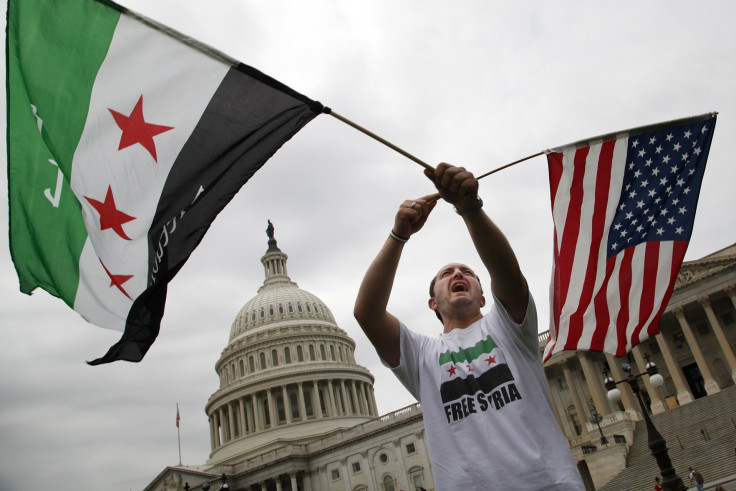Secret Deals Between Russian Banks And Syria: Second-Tier Russian Banks Mull Undercutting US Bank Sanctions To Supply Food To Assad Government

In a bid to beat U.S. sanctions, Syrian President Bashar al-Assad is continuing to do business with Russian banks in order to obtain weapons and foodstuffs. A proposed barter deal with a small Rusian bank would allow Syria to recieve imports in exchange for various goods, including oil.
Under sanctions aimed at toppling the despotic al-Assad regime, U.S. banks are not allowed to deal with the Syrian central bank and the Commercial Bank of Syria. But Russia isn't collaborating in those efforts.
The Syrian government is currently negotiating a barter account with Tempbank that would allowing Damascus to trade oil or goods for foodstuffs that are shipped directly from Ukraine. Reuters reported that a fax it obtained confirms a new relationship could be formed soon.
"Further to the opening of various accounts in our bank's name on your books, and our previous discussions for the establishment of a fruitful banking relationship between our two banks ... an agreement between the commercial parties in Syria and Ukraine has been concluded for exporting & importing main foodstuff and agricultural products between both sides through barter deals as per the demand of the Syrian government," the fax said.
The deal comes at a fragile time for the region as peace negotiations continue between the United States, Europe and Russian leaders in order to prevent further chemical weapon use against Syrian citizens and hopefully forge a path to sustained peace after two and half years of war.
The United States sanctions against Syria were designed to punish the country for the alleged actions it took against its citizens. However, it has been alleged by various media outlets in Russia that Syrian President Bashar al-Assad, in an attempt to continue supplying his government with food, arms and oil has turned to Russian banks to gain underhanded access to global markets.
In a move similar to the way the U.S. has dealt with Iran, U.S. senators Kelly Ayotte, Richard Blumenthal, John Cornyn and Jeanne Shaheen want any Russian bank doing business with Syria to also be placed on the blacklist. Some Chinese banks were put on the list after doing business with Iran earlier this year. But in what will be perceived as a major blow to U.S. and Russian relations, Russian banks have looked to strengthen ties with Syria in recent months, underlined when a small Russian bank bankrolled an air defense system and fighter jets for Syria.
A relationship between Russian banks and Syria was reported more than two years ago when troubles in the region were just beginning, but U.S. pressure meant that Syria had to start using second-tier banks in Russia to stay under the radar and prevent more sanctions from the U.S.
© Copyright IBTimes 2024. All rights reserved.












